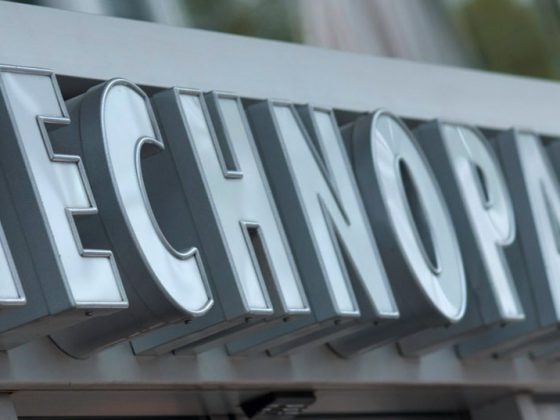An antidote to Factor Xa inhibitors is making great progress in clinical trials: Andexanet alfa. New results were presented at the American College of Cardiology Congress in San Diego: According to these results, the antidote can also achieve a rapid and almost complete reversal of anticoagulation in patients taking rivaroxaban.
Millions of people are already being treated with Factor Xa inhibitors, and it is likely that the market for anticoagulants will continue to grow. This also increases manufacturers’ interest in finally being able to offer effective specific antidotes to the new oral anticoagulants. Estimates suggest that severe bleeding occurs in approximately 1-4% of individuals treated with Factor Xa inhibitors each year, with an additional one percent requiring emergency surgery. For both situations, a specific antidote is urgently needed to quickly reverse the anticoagulation.
One such solution is promised by the new antidote Andexanet alfa, which acts as a kind of “bait” for Factor Xa inhibitors in the blood. The recombinant molecule resembles human Factor Xa (but does not exhibit its clotting function). It thus “attracts” the anticoagulant agent circulating in the blood and binds to it with high affinity and competitively. Inhibition of clotting is quickly reversed because the inhibitors are no longer able to dock to and block human factor Xa. In the future, Andexanet alfa is expected to be applicable both in the short term via administration of an intravenous bolus and in the longer term via the addition of an extended infusion. This allows it to be used in a variety of clinical scenarios.
ANNEXA™ program
The so-called ANNEXA™ program consists of several randomized controlled Phase III trials using FDA-accepted endpoints.
For the first part of the ANNEXA-A study, in which the antidote was tested against apixaban in 33 healthy volunteers and dosed as a single intravenous bolus, a significant effect was already presented (reversal of the effect of apixaban two to five minutes after bolus by approximately 94%). Tolerance was very good, with only three mild infusion reactions. In early April, the manufacturer announced that part two of the trial, in which Andexanet was administered by bolus and continuous infusion to maintain anticoagulation reversal, also met the set endpoints. Thus, the effect persisted during the two-hour continuous infusion.
In addition, four separate phase II trials in healthy volunteers also demonstrated that the antidote immediately and persistently reversed the effects of anticoagulants (in addition to apixaban and rivaroxaban, edoxaban was also tested). Tolerability was good, and no thrombotic events occurred in the total of 140 participants.
Antidote effect against rivaroxaban
The results presented at the ACC Congress were for ANNEXA-R, a phase III trial that tested the effect of the antidote to rivaroxaban. Similar to the ANNEXA-A study, the design is two-part with a short-term and long-term administration. In the first part, 41 healthy volunteers aged 50-75 years were included. They received rivaroxaban 20 mg/d for four days and then – four hours after the last rivaroxaban dose, i.e., at the time of maximum plasma concentration (Cmax) – either andexanet as an 800 mg i.v. bolus or placebo in a 2:1 ratio.
Efficacy was evaluated using biomarker endpoints. The primary endpoint was the anti-factor Xa level two to five minutes after bolus (relative to the peak level before bolus administration). Secondary end points included plasma concentrations of unbound rivaroxaban and thrombin generation levels (determined by endogenous thrombin potential [ETP]).
Significant reversal of anticoagulation.
A total of 27 patients received andexanet and 14 received placebo. The primary endpoint was met with high statistical significance and in a short time – in addition, the drug was well tolerated. Specifically, andexanet decreased rivaroxaban activity by more than 90% at the lowest measurement point. Significantly more subjects reached this nadir with the antidote (n=26) than with placebo (n=0), p<0.0001. Unbound rivaroxaban was also highly significantly reduced in blood compared with placebo. ETP, in turn, increased significantly with the antidote, reaching normal levels of thrombin generation within 10 minutes after bolus in 26 of 27 subjects. There were no serious or severe adverse events and no thrombotic events.
In the second part of ANNEXA-R, approximately 40 healthy subjects will receive either andexanet bolus of 800 mg followed by a continuous infusion of 8 mg/min for 120 minutes or placebo after the same initial phase with rivaroxaban. The results are expected to be released later this year.
Confirmation study underway
As part of the accelerated filing planned for the end of 2015, a Phase IV study is also underway to evaluate clinical outcomes with andexanet in patients with acute major bleeding. Based on the immediate and near complete reversal of anticoagulation in ANNEXA-A and ANNEXA-R, it is strongly anticipated that andexanet will be the first specific universal antidote to receive regulatory approval against factor Xa inhibitors. It has already received orphan drug status at the end of February 2015.
Source: American College of Cardiology March 14-16, 2015, San Diego.
CARDIOVASC 2015; 14(3): 34-35











